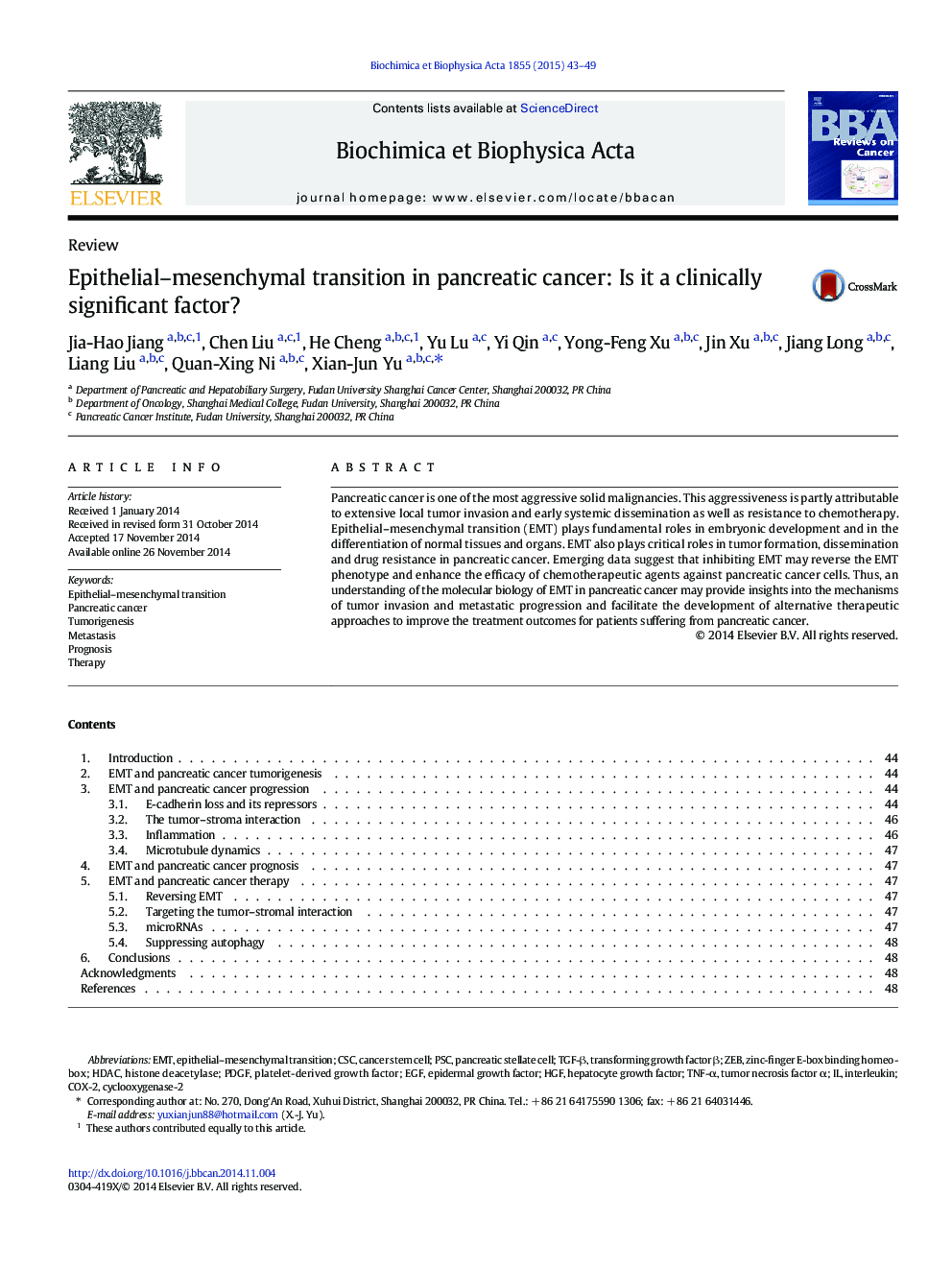| Article ID | Journal | Published Year | Pages | File Type |
|---|---|---|---|---|
| 2100870 | Biochimica et Biophysica Acta (BBA) - Reviews on Cancer | 2015 | 7 Pages |
•Pancreatic cancer has a poor prognosis.•EMT is fundamental to both physiological and pathological development.•EMT plays a role in pancreatic cancer tumorigenesis, progression and prognosis.•EMT inhibition can block pancreatic cancer metastasis and enhance drug sensitivity.
Pancreatic cancer is one of the most aggressive solid malignancies. This aggressiveness is partly attributable to extensive local tumor invasion and early systemic dissemination as well as resistance to chemotherapy. Epithelial–mesenchymal transition (EMT) plays fundamental roles in embryonic development and in the differentiation of normal tissues and organs. EMT also plays critical roles in tumor formation, dissemination and drug resistance in pancreatic cancer. Emerging data suggest that inhibiting EMT may reverse the EMT phenotype and enhance the efficacy of chemotherapeutic agents against pancreatic cancer cells. Thus, an understanding of the molecular biology of EMT in pancreatic cancer may provide insights into the mechanisms of tumor invasion and metastatic progression and facilitate the development of alternative therapeutic approaches to improve the treatment outcomes for patients suffering from pancreatic cancer.
